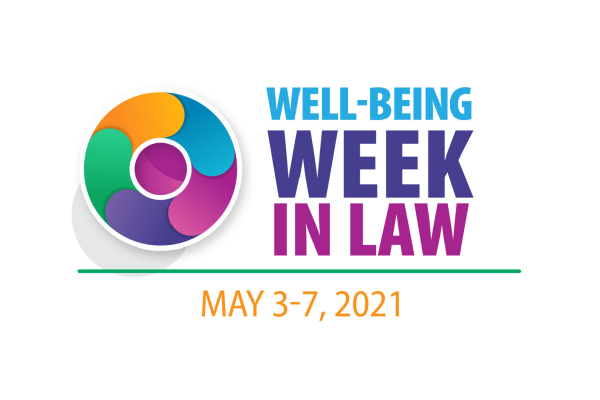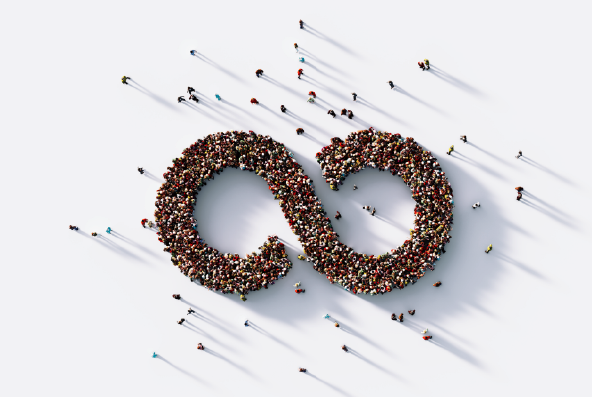June is PTSD Awareness Month. Understanding trauma can help individuals in the legal profession (and beyond) understand the impacts of racism and the importance of taking action to end it.
When the diagnosis of Post Traumatic Stress Disorder was first given a name in the post-Vietnam War era, PTSD was neither new nor limited to the trauma of combat. Veterans of previous wars had long experienced “battle fatigue” or “shell shock”. And more pervasively, PTSD was identified in people who had endured other kinds of discrete trauma (e.g., witnessing a murder or devastating fire) or ongoing, recurrent trauma (such as childhood abuse). In these situations, overwhelming experiences stay with individuals, not only as bad memories, but as if they were still occurring, and colored their daily life experience.
While the diagnosis has been applied mainly to those kinds of vivid and specific traumatic experiences, therapists studying and treating trauma have come to recognize that PTSD symptoms can also result from recurrent, chronic forms of psychological harm, including those in which individuals in positions of relatively less power are demeaned, diminished, attacked, exploited, etc., by those in positions of greater power (parents, teachers, coaches, bosses, police, etc.). The “Me Too” movement helped to elucidate the extent to which women have, for so long, been victims of undermining, exploitative treatment that at one point most people accepted as just the way life is. (Many knew, for example, about the “casting couch” in Hollywood, but, while it may have seemed wrong, only recently have we recognized it as trauma.)
Monica T. Williams, PhD, a clinical psychologist and University of Ottawa faculty member, has highlighted this understanding of PTSD as it applies to the experience of racism, including in the context of close, personal relationships. What she helps us understand, in this blog post and in her research, is that racism is a source of serious psychological trauma that individuals can fail to recognize, both as victims and health practitioners. Dr. Williams’s observations offer guidance to health practitioners — and can also inspire all of us to recognize (rather than ignore) the impact of the perpetrators in our midst, enabling us to confront it.
Racial trauma can result from experiences with individual and systemic racism. As explained by Mental Health America:
“Racial trauma, or race-based traumatic stress (RBTS), refers to the mental and emotional injury caused by encounters with racial bias and ethnic discrimination, racism, and hate crimes [1]. Any individual that has experienced an emotionally painful, sudden, and uncontrollable racist encounter is at risk of suffering from a race-based traumatic stress injury [2]. In the U.S., Black, Indigenous People of Color (BIPOC) are most vulnerable due to living under a system of white supremacy.
Experiences of race-based discrimination can have detrimental psychological impacts on individuals and their wider communities. In some individuals, prolonged incidents of racism can lead to symptoms like those experienced with post-traumatic stress disorder (PTSD) [2]. This can look like depression, anger, recurring thoughts of the event, physical reactions (e.g. headaches, chest pains, insomnia), hypervigilance, low-self-esteem, and mentally distancing from the traumatic events [3]. Some or all of these symptoms may be present in someone with RBTS and symptoms can look different across different cultural groups. It is important to note that unlike PTSD, RBTS is not considered a mental health disorder. RBTS is a mental injury that can occur as the result of living within a racist system or experiencing events of racism [3].
And it isn’t just our own experiences that can be traumatizing — “The piece about racial trauma that is really unique is the intergenerational impact,” as Maryam Jernigan-Noesi, a psychologist at Boston College’s Institute for the Study and Promotion of Race and Culture, points out a Huffington Post piece titled This Is What Racial Trauma Does to the Body and Brain, which discusses sleep pattern interruption, over- or under-consumption of food, increases in cortisol, symptoms related to anxiety, depression, and hypervigilance, and effects even prior to birth. As article author Jillian Wilson points out,
“As issues related to race and equality continue to spark self-reflection among non-Black people, the phrase “racial trauma” is being invoked more frequently, and becoming an even more necessary official treatment area in the mental health field.
In order for Black people to address their experiences and ultimately work toward healing, racial trauma needs to be acknowledged and implemented into mental health treatment trainings — because, as the experts we spoke to emphasized, racial trauma has its own set of challenges and effects for victims.”
Many of the lawyers with whom I’ve met at LCL over the years were inspired by a sense of mission to act in the cause of social justice. This is perhaps most obvious among those who work in the field of immigration law, or who represent victims of violence (and who, in that way, often develop their own, vicarious form of PTSD). Criminal defense lawyers routinely see the ways in which clients of color receive different kinds of justice than non-minority clients. Lawyers do well when they face the facts of institutionalized trauma; when they do, they themselves also need support.
Resources:
The expert-backed guide to managing your mental health in the face of discrimination
7 Virtual Mental Health Resources Supporting Black People Right Now
44 Mental Health Resources for Black People Trying to Survive in This Country
Black Mental Wellness offers 5 Steps for Grieving from Racial Trauma
The Unapologetic Guide to Black Mental Health: Navigate an Unequal System, Learn Tools for Emotional Wellness, and Get the Help You Deserve, by Rheeda Walker, PhD. — is now in our lending library, contact rachel@masslomap.org to reserve.
How I Take Up Space, from licensed therapist Nicole R. Cobb
More resources from Decolonizing Therapy
Black Mental Health Podcasts curated by Ayana Therapy:
- Between Sessions Podcast
- Ourselves Black Podcast
- Silent Symptoms Podcast
- Minding My Black Business Podcast
- Celeste The Therapist Podcast
Free & Confidential Consultations:
Lawyers, law students, and judges in Massachusetts can discuss well-being and mental health concerns with a licensed therapist and law practice management concerns with a law practice advisor. Find more on scheduling here.
. . .
This post was written by Dr. Jeff Fortgang, PhD




